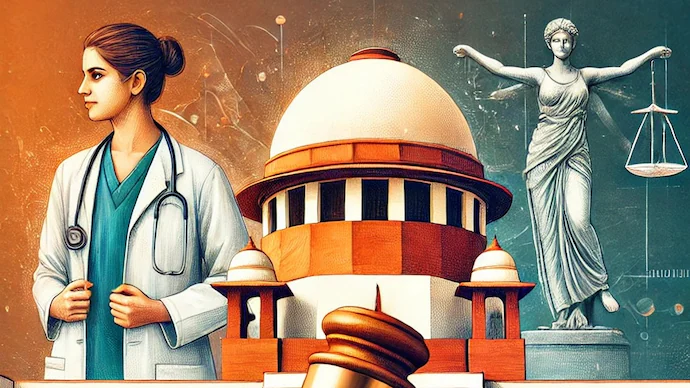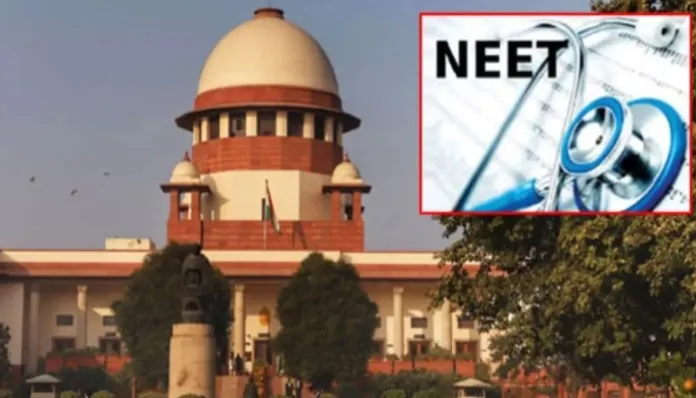Domicile-based reservation refers to the policy of allocating a certain percentage of seats in educational institutions, specifically in the context of medical education, to candidates based on their state of origin. In India, the National Eligibility cum Entrance Test for Postgraduate courses (NEET PG) serves as a significant gateway for aspiring medical professionals to secure admission into postgraduate medical programs. The introduction of domicile-based reservations was viewed as a means to uphold equitable access to education for local candidates in their respective states.
The primary rationale behind implementing domicile-based reservation is rooted in the belief that candidates who have spent the majority of their educational journey within their home state are better equipped to understand the local healthcare challenges and, consequently, can contribute more effectively to the healthcare system. By providing these candidates with a fair opportunity to secure seats in medical colleges, the policy aimed to bolster the workforce in the states and improve healthcare outcomes in underserved regions.
The reservation policy was operationalized by various state governments and institutions, each determining the extent and criteria for domicile-based reservations in alignment with their local needs. Consequently, a complex landscape emerged, with inconsistencies in implementation across states. While the intentions might have been noble, the effect of these reservations sparked debates about their impact on meritocracy and the quality of education in medical institutions. Advocates of the policy claim that it plays a crucial role in addressing regional disparities in health services, while critics argue that it compromises the standards of admission for highly qualified candidates nationwide. This ongoing discourse highlights the complexities of balancing local needs with national standards in medical education.
The Supreme Court’s Ruling : NEET PG
In a landmark decision, the Supreme Court of India has declared that domicile-based reservation in the National Eligibility cum Entrance Test for Postgraduate courses (NEET PG) is unconstitutional. This ruling emerged from a case that was brought to the attention of the court, challenging the legal foundation of preferential allotment based on a candidate’s state of origin.
The legal arguments presented were multifaceted, focusing primarily on the principles of equality and opportunity enshrined in the Constitution of India. Petitioners asserted that such reservations contravened Article 14, which guarantees the right to equality before the law. The opposing counsel contended that domicile-based reservations were necessary to address regional disparities in education and healthcare access. However, the court found these arguments lacking in merit, suggesting that such policies often resulted in unequal opportunity and might perpetuate regional discrimination.

During the deliberations, various justices expressed diverse perspectives. Some highlighted the necessity of ensuring fair competition among medical aspirants across the nation, while others acknowledged the concerns regarding the exclusion of deserving candidates from disadvantaged backgrounds. Ultimately, the majority opinion underscored the need for a uniform standard in the allocation of educational opportunities and criticized the archaic nature of domicile-based systems that fail to serve the broader interests of the citizenry.
This decision aligns with previous judgments regarding educational reservations, which have continually emphasized the importance of meritocracy and equal representation. The ruling could potentially reshape the landscape of medical education in India, influencing policies related to admissions in various states. The implications of this verdict will likely reverberate across educational institutions, prompting a re-evaluation of existing frameworks in the pursuit of equitable access to education in the healthcare sector.
Reactions and Implications of the Decision
The recent Supreme Court verdict declaring domicile-based reservation unconstitutional has elicited a diverse array of reactions from key stakeholders within the medical education sector. Medical students have largely expressed concern regarding the potential impact on their opportunities for admission into postgraduate programs. Many believe that the absence of domicile-based reservations may lead to increased competition, making it more challenging for students from certain states to secure placements in revered institutions. Some students fear this shift could exacerbate the existing inequalities, particularly in states with limited educational resources.
On the other hand, numerous educational institutions and legal experts have supported the ruling, viewing it as a step towards promoting meritocracy in medical admissions. They argue that a merit-based system is essential for ensuring that the most capable candidates access medical education, ultimately enhancing the quality of healthcare in the nation. Such stakeholders underscore that this decision may pave the way for a fairer selection process, where students are evaluated primarily on their academic achievements rather than their geographic origins.
State governments have reacted with mixed sentiments; some officials lament the loss of domicile considerations, worrying that it may disadvantage local students and inhibit their representation in medical professions. Conversely, proponents of the ruling have asserted that it could foster a more equitable system, reducing political manipulations often linked to reservation policies. The ruling undoubtedly stirs a larger discussion about the finer points of reservation policies in India and their implications for equity in access to education.
As the dust settles from this landmark decision, prospective NEET PG candidates must navigate the evolving landscape. The ruling may lead to an increased emphasis on preparation and performance, thus reshaping how students approach their studies and application strategies in the face of heightened competition.
Future of Reservation Policies in Medical Education
The Supreme Court’s recent declaration that domicile-based reservation is unconstitutional marks a pivotal moment for reservation policies in the realm of medical education in India. This ruling has ignited extensive discussions on the future trajectory of these policies, especially regarding equitable access to medical institutions. Stakeholders, including policymakers, educators, and students, are tasked with re-evaluating the existing frameworks to align with the judgment while ensuring fair opportunities for all candidates aspiring to enter the medical field.
One significant area of concern is the balance between meritocracy and reservation. Proponents of merit-based admissions argue that selection should be based solely on academic performance, to foster a competitive environment that ultimately enhances the quality of medical professionals. Conversely, advocates for reservation emphasize the need to level the playing field for disadvantaged groups, ensuring that socioeconomic barriers do not hinder capable candidates from pursuing medical education. As the Supreme Court’s ruling discourages domicile-based criteria, there may be calls for a revised approach to incorporating socioeconomic status in admissions processes, possibly through income-based assessments or alternative affirmative actions.
Potential reforms could include a more comprehensive evaluation of candidates that factors in various dimensions of diversity and disadvantage, moving beyond the belief that a single criterion suffices. This approach may ultimately lead to a more inclusive environment within medical institutions. Additionally, medical education stakeholders must address how these changes may affect both current and future students in terms of opportunities and outcomes. The ongoing debates will likely shape future policies as the country seeks to strike a balance between fostering excellence in medical education while ensuring equitable access for aspiring healthcare professionals. This evolving landscape necessitates a careful analysis of various angles to create a nuanced and fair admission process without undermining the integrity of the education system.





